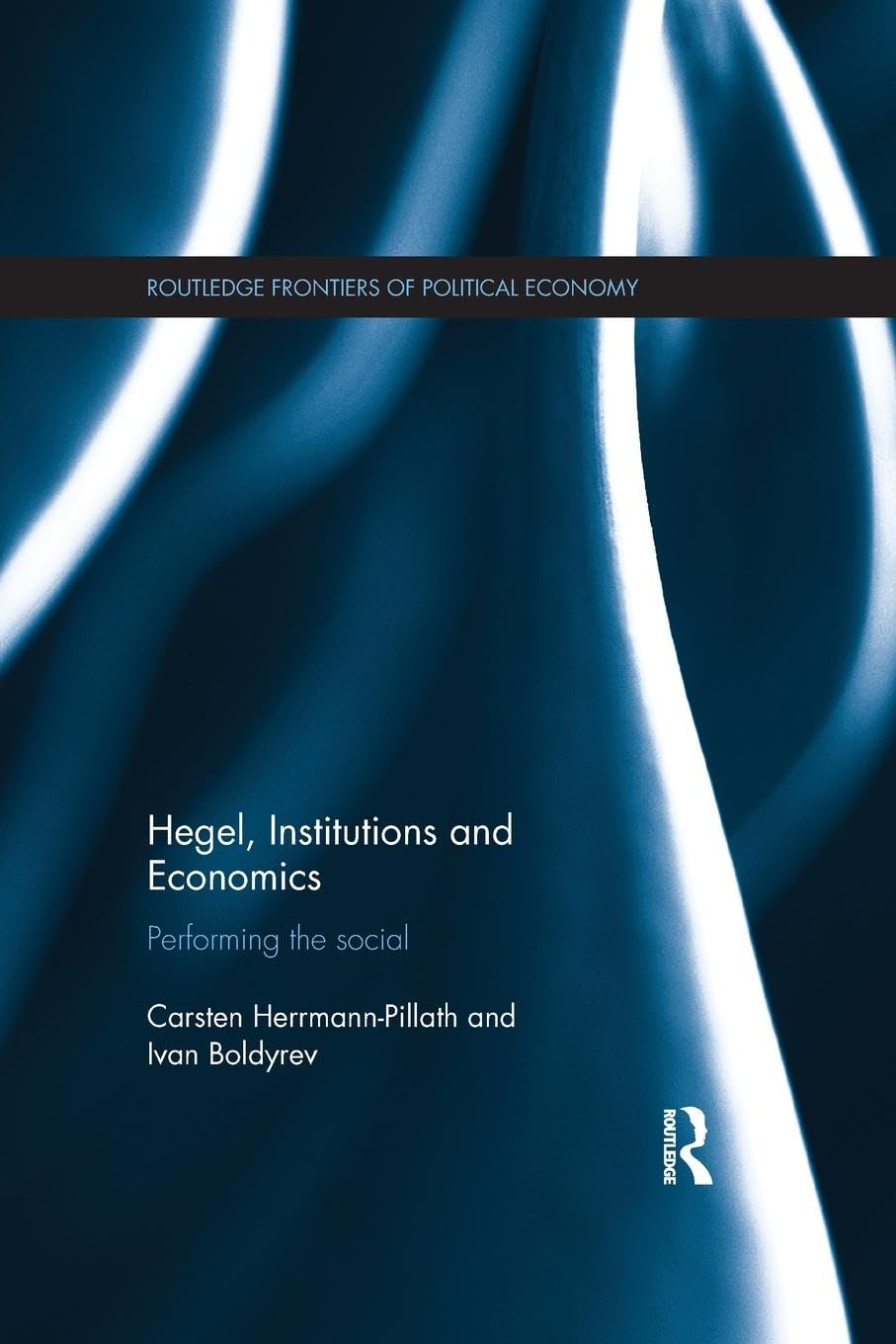Hegel, Institutions and Economics: Performing the Social (Routledge Frontiers of Political Economy)
Hegel, Institutions and Economics: Performing the Social (Routledge Frontiers of Political Economy) is backordered and will ship as soon as it is back in stock.
Couldn't load pickup availability
Genuine Products Guarantee
Genuine Products Guarantee
We guarantee 100% genuine products, and if proven otherwise, we will compensate you with 10 times the product's cost.
Delivery and Shipping
Delivery and Shipping
Products are generally ready for dispatch within 1 day and typically reach you in 3 to 5 days.
• Book Format: Paperback
• Language: English
• ISBN-13: 9781138658226
• Writer: Herrmann-Pillath, Carsten
• Binding: Paperback
• Number of Pages: 312
• Release Date: 03-03-2016
• Publisher: Taylor & Francis Ltd
• Package Dimensions: 9.3 x 6.1 x 1.1 inches
Description:
Hegel’s philosophy has witnessed periods of revival and oblivion, often regarded as either a comprehensive system of thought or renounced with equal fervor. This book re-engages with Hegel, presenting his legacy as a source of insight to help rethink contemporary economics. The focus is on Hegel’s concept of institutions, crucial to both his political philosophy and modern economic theory.
The book blends traditional economic approaches with innovative ideas derived from economic experiments, neuroeconomics, sociology, and cognitive science. It challenges the conventional view of civil society, proposing it as a historically evolving system of interconnected individual minds, ideas, and intersubjective structures. These elements, tied by recognitive relations, form a unified whole in the dynamic movement of 'objective spirit.'
This Hegelian perspective paves the way for understanding phenomena like cooperation, personal identity, and justice, as explored in Amartya Sen's work on 'realization-focused comparisons.' By providing a fresh conceptual framework and reformulating institutional theory, this book revives Hegel’s relevance in contemporary social sciences and offers new insights for economists, sociologists, and political scientists alike.





